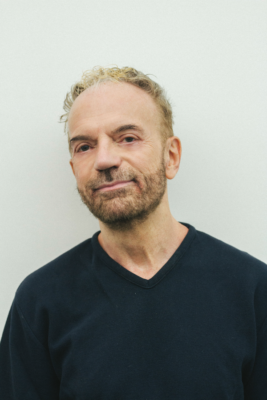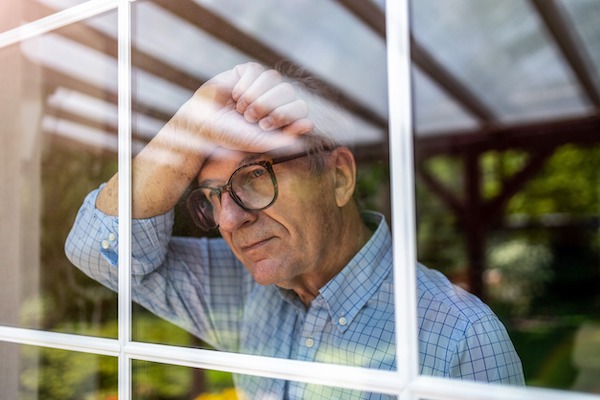Face to Face with Your Own Mortality
How to Embrace Living While Coping with Thoughts about Dying
by Gary R. McClain, MS, PhD, LMHC, BCC, CEAP
“It’s not like I think I’m about to die,” Emily said to me.
“I’m sure glad to hear that,” I answered. We both smiled.
“But I have to be honest with you. I am sitting here with a cancer diagnosis. My doctor told me my prognosis is good. I am responding well to my treatment. But still … I can’t help but think about my mortality. I think about how I’m going die someday, something I hadn’t really thought about much before this diagnosis.”
“In what way do you think about it?” I asked.
She thought for a moment, and then answered: “I just think that getting my diagnosis made me more aware that life isn’t guaranteed. Stuff happens. Then I wonder, if this could happen, what else could happen? I don’t know. Life feels a whole lot more uncertain than it used to. And thinking about the end of life is kind of like the ultimate uncertainty. That’s plain old depressing. What should I do?”
What should Emily do? That’s a difficult question to answer.
“I don’t have a simple answer for you,” I said. “But there is a lot for us to talk about.”
There are no guarantees in life. Nobody understands that better than someone who is living with a cancer diagnosis.
Thoughts about your own mortality are scary. And normal.
Do you relate to Emily? After your cancer diagnosis, do you find yourself thinking more about your own mortality? It’s only human to think about life coming to an end. And living with cancer can make you that much more aware of how unpredictable life can be. While I may not have all the answers to your questions about mortality, here are some insights that may help you embrace living while coping with thoughts about dying.
Life can feel random. That’s because it kind of is. There are no guarantees in life. Nobody understands that better than someone who is living with a cancer diagnosis. You didn’t plan for it, but it happened anyway – like a lot of what goes on in life. However, finding out you have cancer is not the same as getting a flat tire. The stakes are a lot higher. And the questions that arise are a whole lot bigger. Like questions about your mortality.
Try to view this as an awakening. I am all about finding the silver lining, the opportunity to learn and grow in any situation that comes our way. A client once told me that after learning he had cancer, he went home and listened to his favorite music playlist and felt like he was hearing the songs in a way he had never heard them before. He said his cancer diagnosis awakened him to the beauty, the preciousness of life. Yes, there were challenges, but it also gave him a greater appreciation of the simple joys each day holds. What if we all shared this attitude toward life?
Think of it as being a step ahead. At some point, we’re all going to be thinking about our mortality. Being diagnosed with cancer just may push you in that direction a lot earlier in life than someone who hasn’t faced a life-threatening medical diagnosis. That’s not necessarily a good thing or a bad thing. But I do think a cancer diagnosis is an opportunity to gain wisdom about life – including the awareness that life is not guaranteed. Look at it this way: We all come to a point in life where we accept that we won’t live forever. Some of us come to that acceptance sooner than others. That’s called wisdom.
At some point, we’re all going to be thinking about our mortality. Being diagnosed with cancer just may push you in that direction a lot earlier in life than someone who hasn’t faced a life-threatening medical diagnosis.
Don’t be afraid to reach out for support. Also, don’t be disappointed when you don’t receive it from certain family members or friends. Thoughts about mortality are best shared with someone who can listen without judgment; the operative word here being listen. Not everyone can hear a loved one talk about the possibility of death. Most of us don’t want to think about it ourselves, let alone be asked to actually talk about it. So don’t take it personally when you get a response like, “Don’t think about that. You’re going to be just fine.” Yes, they missed the whole point. And, no, don’t push it. Just find someone who can listen. A friend, family member, clergyperson, counselor, or mental health professional.
Have an attitude of gratitude. Each day presents us with an opportunity to embrace gratitude. Even the simplest things, like the morning sun filtering through your bedroom window, a warm mug of coffee, a genuine smile from someone you love or even a stranger. You have the power to make a conscious choice to focus on what’s working in your life and to be grateful for it. When you do this, you’ll be surprised by how much more you will appreciate being alive. Seize the joy in each day. And I do mean seize!
Establish a spiritual connection. There are many ways to define spirituality. And when thoughts about mortality come up, this can be a suitable time to reach out to a Higher Power, however you define this for you. Clients have told me they reconfirmed the religion they grew up with. Others have found a new spiritual practice or religion, often with a community of practitioners or believers to become a part of. Still others have discovered a spiritual connection through music or nature, or by deepening their interpersonal relationships.
Thoughts about mortality are best shared with someone who can listen without judgment; the operative word here being listen.
Be vigilant and seek professional help when you need it. My client Emily was concerned that her thoughts about her mortality would lead her to fall into a helpless, hopeless state, which can lead to depression. As her therapist, I shared that concern and was able to help her through it. That’s what we are trained to do. So, if you become concerned that you are losing your motivation to keep moving forward in your life, if the future looks like one giant hard slog, then consider doing the bravest thing in the world. Reach out for help. Let me put it this way: Thoughts about your mortality can lead to wisdom and acceptance. They can also lead to depression and despair. If you find yourself leaning toward the dark side of thinking about your mortality, get some help. I and my fellow mental health professionals are ready for you whenever you need us.

Dr. Gary McClain is a therapist, patient advocate, blogger, and author who specializes in helping people deal with the emotional impact of chronic and life-threatening illnesses. He helps them understand and cope with their emotions, learn about their lifestyle and treatment options, maintain compliance with medical regimens, learn to communicate effectively with the medical establishment, and listen to their own inner voice as they make decisions about the future. He welcomes your questions and comments via email: gary@JustGotDiagnosed.com.
This article was published in Coping® with Cancer magazine, Fall 2023.


